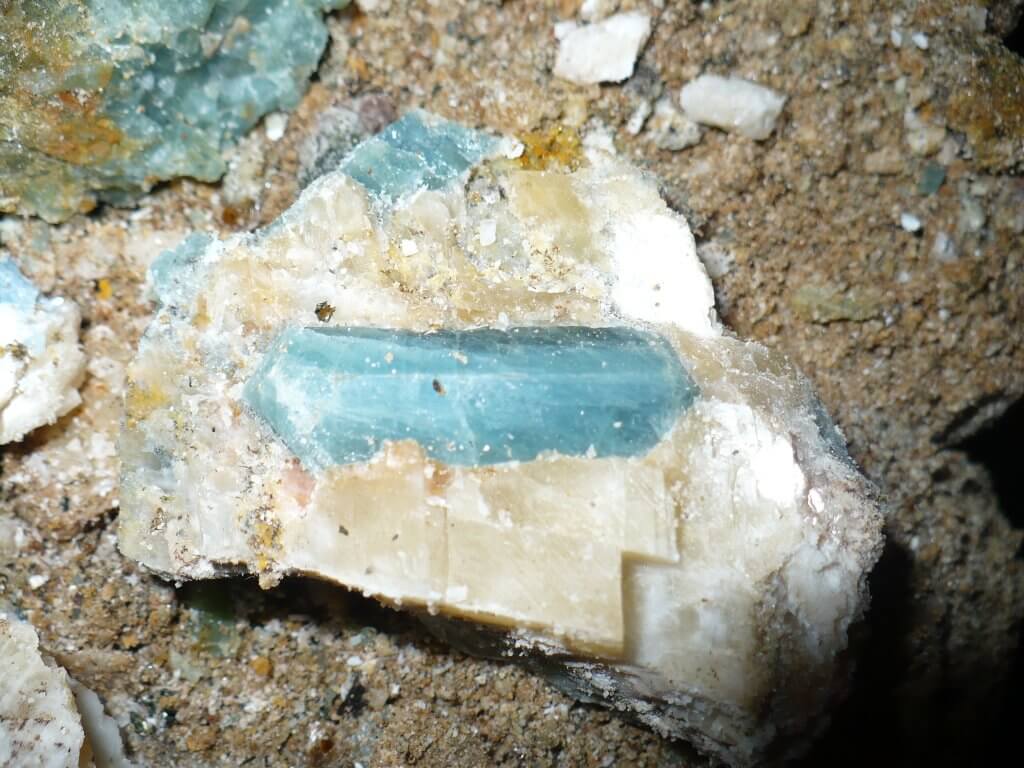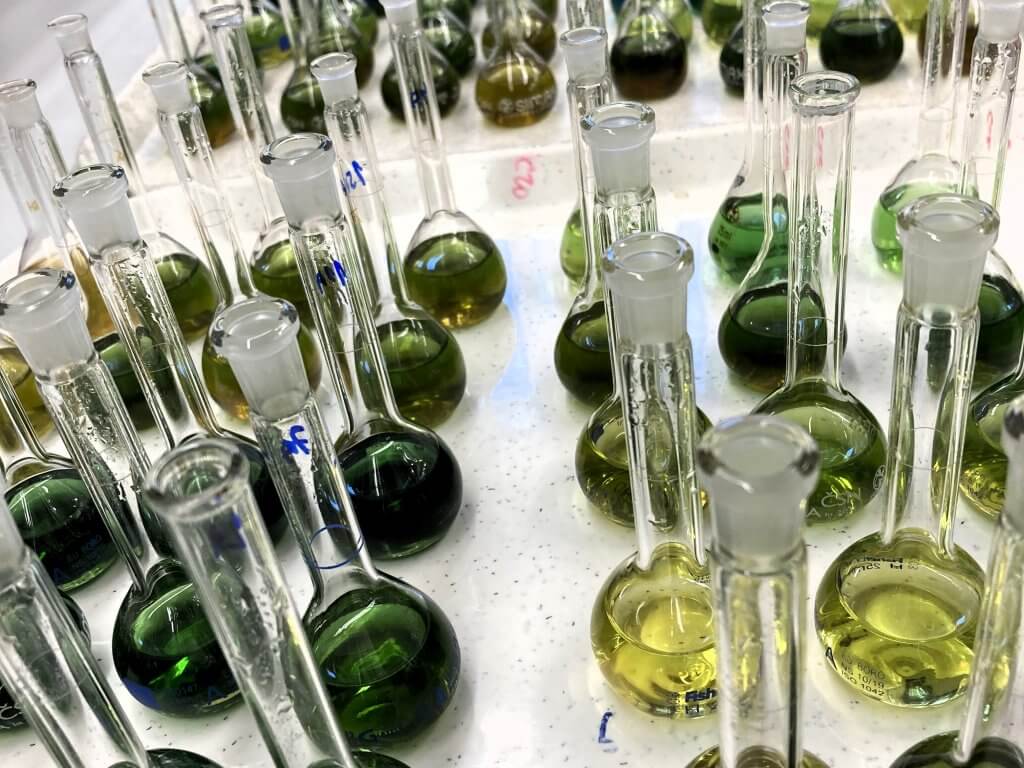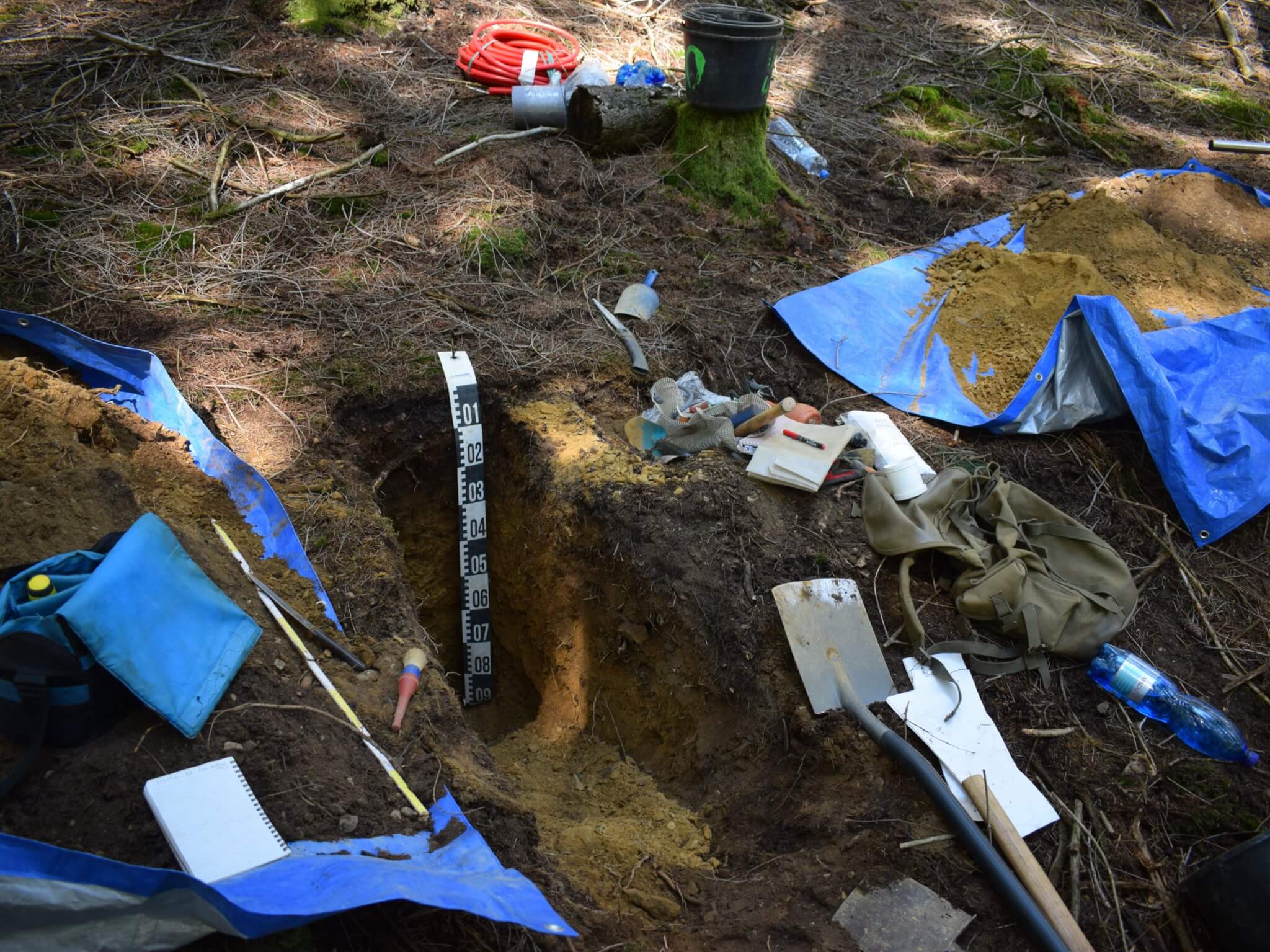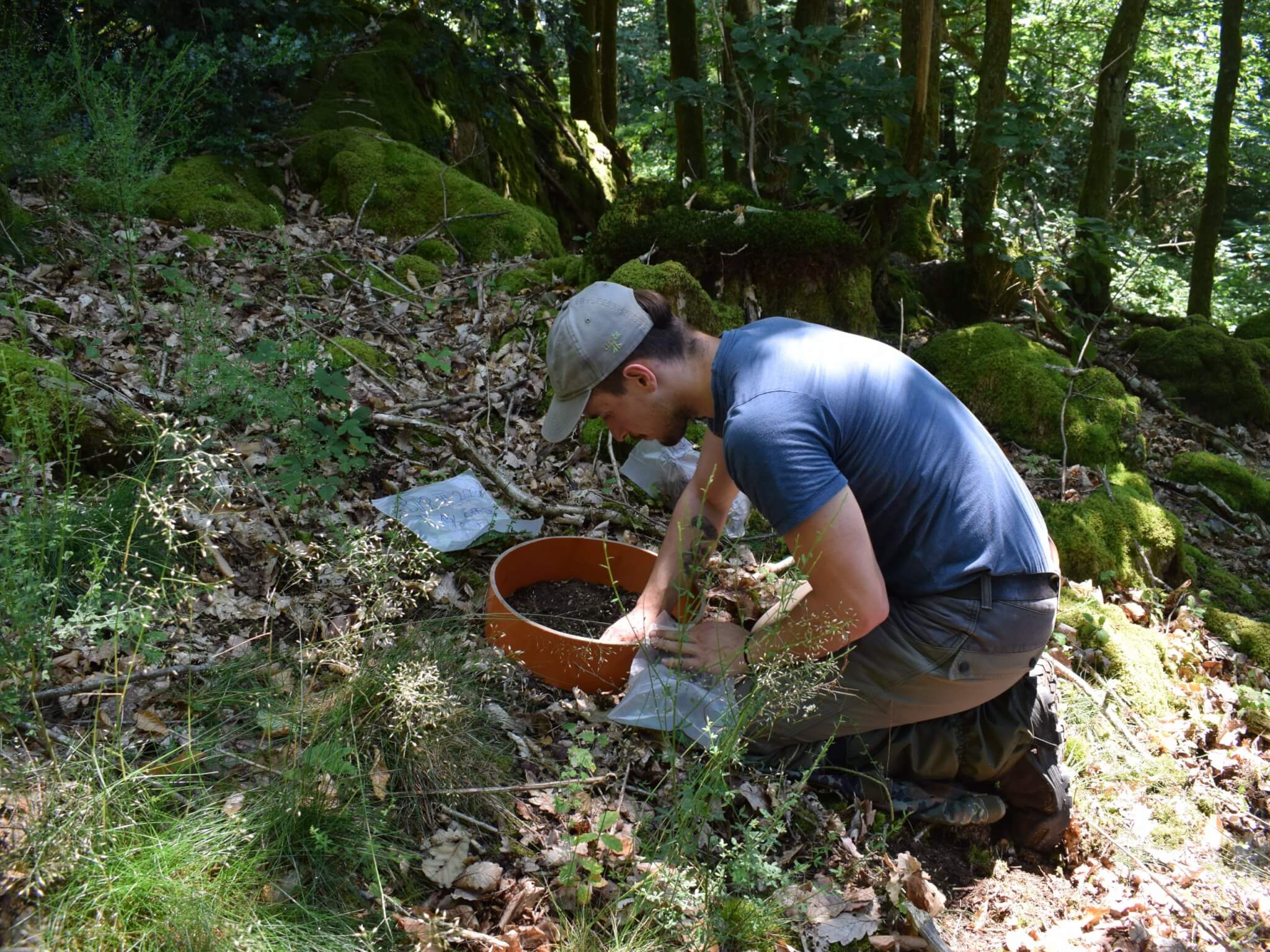Our research is focused primarily on geological and soil processes in the contemporary cultural landscape.
- How are soils and associated ecosystems affected by climate change?
- What are the possibilities for soil remediation in urban environments?
- Understanding soil degradation in relation to the current state and evolution of the environment?
- How can modern technologies be used in traditional disciplines?
- How can soil and geological data associated with archaeological objects help us understand historical land use?
- What possibilities exist for optimising the soil environment in the face of current forest decline?




Services in geology and soil science
The Department of Geology and Soil Science undertakes ‘complementary activities’ through which it offers and provides services in the fields of geology and soil science. As a part of Mendel University’s Faculty of Forestry and Wood Technology, the Department holds the status of an expert witness in the fields of forestry, soil science, geology and ecology.
Expert activities: advisory and consulting services, comprehensive services, forensic expertise, preparation of expert opinions.
The services listed below are provided on a contractual basis at a price set by agreement.
- Soil fertility assessments – with an emphasis on optimising plant nutrition in forestry, horticulture, viticulture, gardening and agronomic activities
- Soil evaluation for nursery establishment and other productive land uses
- Evaluation of suitability for tree planting – assessment of water and air regime and irrigation planning
- Nutrition and fertilisation of forest trees
- Development and evaluation of composts and substrates
- Creation of soil maps and other derived maps
- Soils and anthropogenic impacts – assessment of physical, chemical and biological soil degradation (soil contamination, acidification, loss of production, erosion and erodibility, compaction, etc.) with proposals for remedial measures
- Assessment of soil ecological stability and ecological risks
- Assessment of damage to land intended for forestry use caused by illegal deforestation
- Assessment of the soil environments in urbanised areas (soil salinisation, contamination by exhalates, reconstruction of plantations, etc.)
- Undertaking research on soil science topics
Contact:
Ing. Aleš Kučera, Ph.D.
phone: +420 545 134 521
e-mail: ales.kucera@mendelu.cz
The Department maintains a newly-renovated modern soil science laboratory equipped with up-to-date instruments that allow us to perform a wide range of laboratory analyses:
- Constant weight (drying at 105 °C).
- Total stock of overburden humus (t/ha)
- Determination of soil granule size (soil type) using the Kopecký leaching method. Fractions: sand 2-0.1 mm, powdery sand 0.1-0.05 mm, silt 0.05-0.01 mm, clay particles < 0.01 mm
- Determination of soil granule size using the pipetting method, including physical clay
- Determination of soil granule composition (soil texture) by granulometry
- Specific gravity determined through pycnometry
- Bulk density and reduced bulk density, determined in physical cylinders
- Dry matter and water content
- Maximum capillary water capacity
- Porosity, bulk moisture, aeration, minimum air capacity, relative humidity and pore saturation
- Determination of soil retention curves (pF curves)
- Active and potentially exchangeable soil reactions (in KCl or CaCl2 leachate)
- Determination of soil conductivity
- Determination of soil redox potential
- Loss on ignition at 550 °C – determination of percentage humic substances
- Volumetric determination of carbonates – in a Janko calcimeter by HCl decomposition
- Oxidisable carbon determined through oxidation of soil organic matter (organic carbon) using a chromosulphuric mixture – measured spectrophotometrically at 585 nm absorbance
- Mineral nitrate and ammoniacal nitrogen – extracted with a neutral salt solution and measured spectrophotometrically by absorbance of the soil extract
- Elemental analysis of total C, H, N and S – determined using the dry combustion method
- Elemental analysis by thermal differentiation of organic and inorganic C fractions (organic labile, organic stable/recalcitrant and inorganic) over a temperature ramp of 400-600-900 °C
- Determination of total extractable carbon and nitrogen in liquid samples (leachates from soil samples), e.g. determination of labile carbon (POxC) in soil samples
- Soil catalase activity – determined volumetrically
- Soil enzyme activity – determined spectrophotometrically: acid phosphomonoesterase, urease, protease, arginine deaminase, dehydrogenase
- Soil enzyme activity – determined using fluorogenic substrates (fluorescence method): hydrolytic enzymes (β-glucosidase, cellobiohydrolase, β-xylosidase, phosphatase, arylsulfatase, N-acetyl-β-glucosaminidase (chitinase), alanine aminopeptidase, leucine aminopeptidase, l-tyrosine aminopeptidase), lignolytic enzymes (phenol oxidase, peroxidase)
- Aerobic N mineralisation, nitrification and ammonification – increment of NH4 and NO3 ion concentration during incubation at constant temperature and humidity
- Soil biota activity through respiration tests and basal and potential respiration – incubation in a closed bottle with NaOH solution and determination of released CO2 by back titration
- Determination of total microbial C using the fumigation-extraction method – spectrophotometric determination of oxidisable microbial C in soil extracts in the presence of a chromosulphuric mixture or directly by elemental analysis
- Quantification of DNA in soil
- Determination of soil functional diversity using Biolog EcoPlates
- Community-level physiological profile (CLPP) assessment using the MicroResp™ method
Contact:
Ing. Ladislav Holík, Ph.D.
phone: +420 545 134 037
e-mail: ladislav.holik@mendelu.cz
- Geodiversity Action Plans
- Biodiversity Action Plans
- Slope stability assessment and delineation of landslide areas
- Mineral strength assessment of rocks and soil-forming substrates
- Investigation of hydrogeological conditions
- Assessment of source areas
- Mineralogical and petrological characterisation of natural resources, including total analyses
- Engineering and geological work in landscape terms
- Creation of research papers on geological topics
Contact:
doc. Mgr. Aleš Bajer, Ph.D.
phone: +420 545 134 040
e-mail: ales.bajer@mendelu.cz
- Denver Instruments Pl-214 and RADWAG AS 220.R2 PLUS analytical balances – weighing capacity 0.0001 g
- Thermo Scientific IEC CL31 Multispeed Centrifuge
- Serva BlueMarine and Accuris MyGel MINI Electrophoresis
- Promega Quantus fluorometer (for quantification of DNA in soil)
- FastPrep-25 5G Homogeniser (for working with DNA in soil)
- GFL 3006 horizontal shaker
- OHAUS Frontier 5816R cooled centrifuge
- Cooled atmospheric incubators from Memmert and BMT
- LAC Ht 40 AL laboratory oven
- Heto power dry LL 3000 lyophiliser
- Elementar SoliTOC Cube microelement analyser (carbon fraction analysis)
- Elementar Vario MACRO Cube (C, N, H, S analysis)
- WTW inoLab microprocessor pH meter and WTW Multi 9620 IDS multimeter
- Retsch oscillating, rotor and knife mills
- GL Systems YL 6500 gas chromatograph, with FiD and PDD modules installed
- Memmert and BMT programmable high capacity dryers
- TECAN Infinite M NANO+ Reader (microplate reader, monochromator)
- OHAUS EXPLORER Ex225 DM/AD semi-micromachines
- Accuris SmartBlue MINI transilluminator
- Biochrom Libra S60UV/VIS spectrophotometer
- Thermo Scientific Smart2Pure 3 UV ultrapure water producer
Contact:
Ing. Jiří Volánek
phone: +420 545 134 037
e-mail: jiri.volanek@mendelu.cz
Our work has resulted in prestigious projects, publications and other outputs
- Soil assessment in relation to the Draft Directive on Soil Monitoring and Resilience and its subsequent implementation (TA ČR)
- Technical recommendations for water management within the Forest Transport Network (NAZV)
- Use of silver fir as a species in forest stand conversion in the Czech Republic and the impact of regeneration felling on its growth, vitality, resistance to phytopathogens and development of mycorrhizal associations (NAZV)
- A Forestry Experimentation Laboratory on the Mont Beuvray Archaeology Site (EIP France)
- Rebuilding a river: impact on the soil environment (IGA LDF)
- Efficiency Assessment of WWTP sludge composting based on laboratory analysis of condensate (Inovation voucher)
- Sustainable Resilient Ecosystems and Agriculture Management in Mongolia (STREAM)
- Optimisation of the treatment and processing of sewage sludge from wastewater treatment plants in the production of growing substrates (OP PIK)
- Response of the soil environment to the catastrophic decay of Norway spruce stands (IGA LDF)
- Action Plan for the Protection of Geodiversity (Interreg CZ-SK)
- Geodiversity within urban areas: perception, function and potential (TA ČR ÉTA)
- Urban parks as high-quality social and natural environments for life (TA ČR Éta)
- Retention capacity of soil and landscape and possibilities for its improvement in conditions of climate change (NAZV)
- Determining the vertical mobility of heavy metals in forest soils to optimise tree species composition and reduce the risk heavy metal transfer to edible mushrooms (TA ČR Zéta)
- Multifunction anti-erosion measures as a part of an adaptable landscape (TA ČR Zéta)
- Assessing the impact of chronic highly mineralised groundwater accumulation on ecosystem chemistry and the character of herbaceous vegetation in floodplain forests (IGA LDF)
- Early Eneolithic ditch enclosures in Bohemia: interpretation of their purpose and social significance (GA ČR)
- Contactless monitoring and spatio-temporal modelling of variability in selected soil differentiation properties (ALFA 4)
- Ecological approaches for revitalising ecosystem units in habitats anthropogenically influenced in the past and extreme locations in the present (MZe)
- Abionet
- Use of new organo-mineral stimulants and natural organic materials for the restoration and revitalisation of abiotically and biotically damaged forest stands (ALFA 2)
- Soil acidification in natural forest ecosystems beyond the reach of local sources of pollution: an assessment of the current state and prediction of future developments (GA ČR)
Go to the University Information System.
Every two years, we hold a follow-up meeting to our popular seminar “Soil and the 21st Century”. Speakers include both colleagues and expert guests in the fields of soil science and its many sub-specialisations, including geomorphology, geodiversity, use of remote sensing and geo-information technologies in geology and soil science.
Proceedings:
Collaborations:
Our institutional and business partners can listed in the ‘About us’ section.
Doctoral studies
Doctoral students have been part of our team from the very beginning. We are dedicated to helping them elaborate their research topics, publish their results and ensure the successful completion of their Doctoral studies. Our Doctoral students are also involved in other projects and topics; they assist with field trips and teaching, especially in the lower degree programmes; and complete foreign internships at collaborating universities around the world as an integral part of their education.